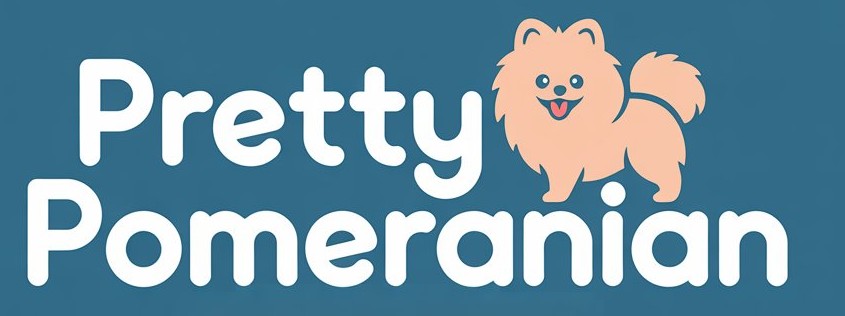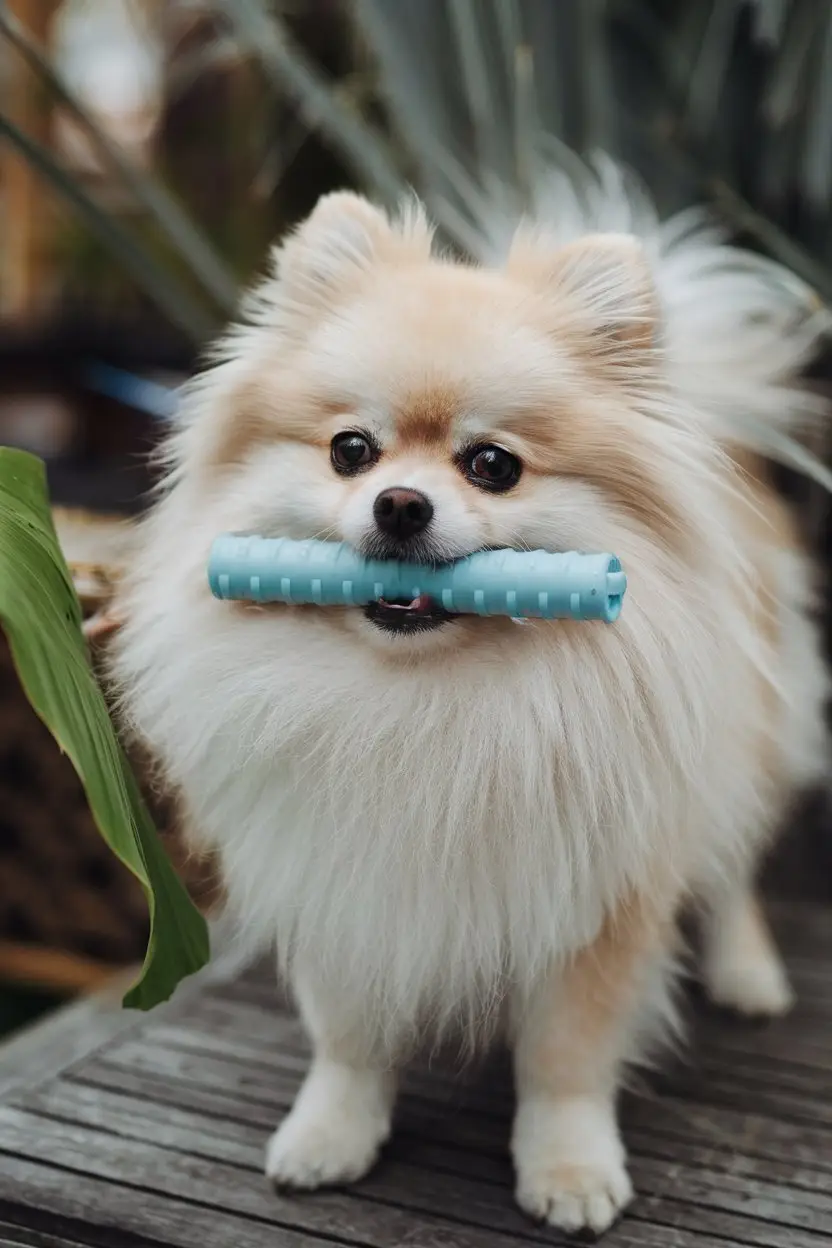Getting your Pom to regular vet check-ups isn’t just another chore – it’s super important for keeping your fluffy buddy happy and healthy! You can spot problems early on, whether it’s tooth issues or those pesky breed problems like tracheal collapse and wonky kneecaps.
Your vet’s gonna keep tabs on your pup’s weight, help you figure out the right food, and make sure those shots are up to date. Once your Pom becomes a senior citizen, popping in twice a year helps catch any aging issues and keeps them living their best life.
💔 The “optional” check-up isn’t optional. I learned that in the worst possible way
👉 Find pet insurance plans that actually cover preventative care so you never have to choose between your budget and your best friend’s health.
Don’t wait until something’s wrong – staying on top of check-ups can actually save you big bucks on emergency vet bills while keeping your little ball of fur in tip-top shape. Trust me, these visits do way more for your Pom’s health than you might think!
Early Warning Signs Matter
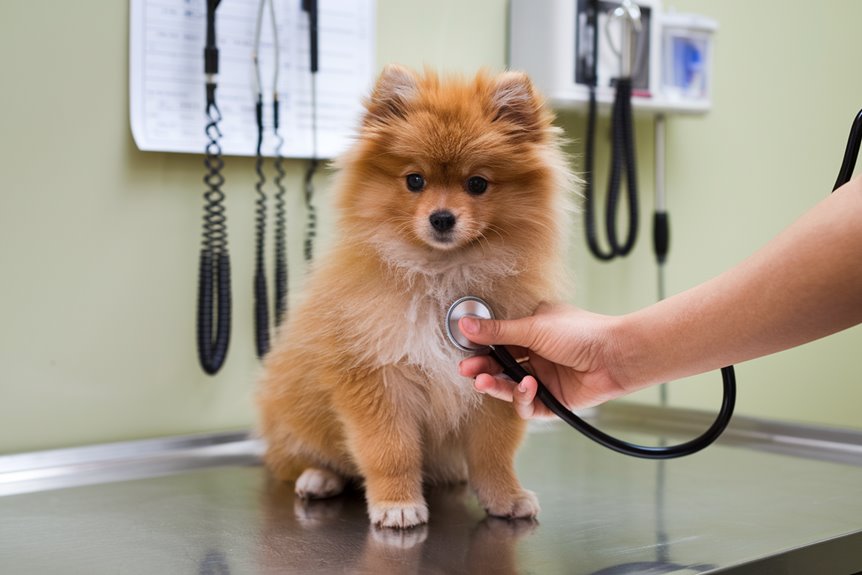
Let’s get real about catching health problems early with your Pom!
Being a good Pom parent means keeping an eye out for those little signs that something’s off. You’ll want to pay attention to how your fluff ball is breathing – if it sounds weird or looks different than usual, that’s your cue to take notice. Daily exercise periods help you spot changes in their energy and breathing patterns.
Keep tabs on stuff like runny noses, weird coughs (especially if they sound like a goose honking), or if your pup gets tired super quickly during playtime. These could mean your Pom’s dealing with breathing issues or heart stuff, which these little guys tend to get.
Also, check out their eyes, skin, and how they move around. If you spot them walking funny or their kneecap seems to pop out (yep, that’s what patella luxation is), don’t sit on it – get to the vet! Regular dental check-ups are crucial since Pomeranians often develop tartar buildup and tooth decay.
Dental Health Is Critical
You know what’s wild? A whopping 80% of dogs have dental problems by age two! And since your Pom’s got such a tiny mouth, they’re more likely to run into tooth troubles.
Without proper care, these issues can actually cut their life short by up to three years.
Let’s keep those pearly whites healthy! Get in there with a doggy toothbrush and toothpaste at least three times a week, and toss them some dental chews to help clean naturally.
Trust me, it’s way better than dealing with painful problems and crazy vet bills later on. Plus, those nasty mouth infections don’t just stay in their mouth – they can mess with their heart, kidneys, and liver too.
Don’t skip those yearly cleanings at the vet, and keep an eye out for stinky breath or puffy gums. Your little fluffball will thank you!
Regular check-ups are especially important since Pomeranians with tracheal collapse risk need careful monitoring of their throat health.
Nutrition and Weight Control
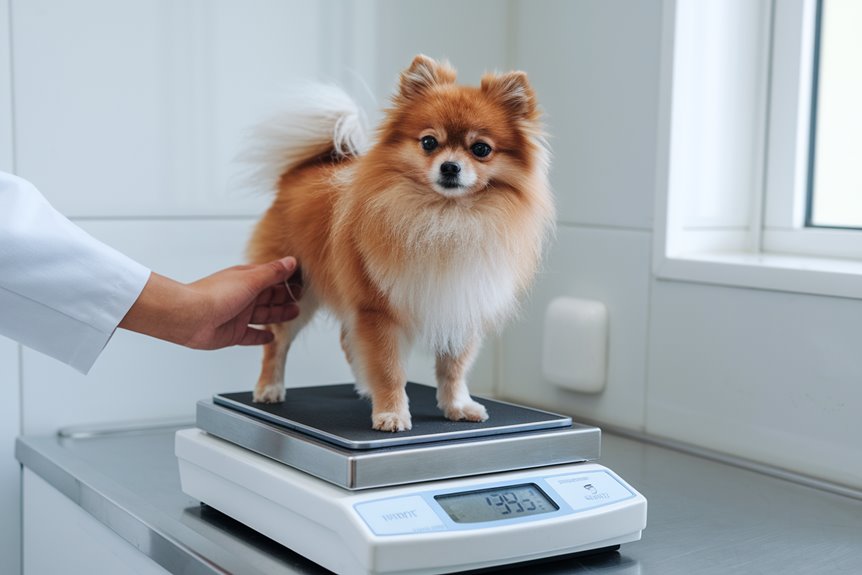
Feeding your Pom right is super important for keeping them healthy and happy for years to come! When you swing by your vet’s office, they’ll help you figure out exactly how much food your little buddy needs and when to feed them. They’ll make sure your pup gets all the good stuff – quality proteins, good fats, and the right carbs – while staying away from junk ingredients.
Your vet can advise which fruits like apples and blueberries are safe and nutritious treats for your Pom. If your Pom needs to watch their weight, your vet’s got your back! They’ll set up an easy-to-follow plan with yummy veggies and perfect portion sizes.
Plus, they’ll show you which treats are okay to give (just keep them under 10% of daily food). These check-ups are perfect for keeping tabs on your Pom’s weight and tweaking their diet when needed.
This helps avoid health issues like diabetes and heart problems that can pop up if they get too chunky. Working together with your vet, you’ll keep your furry friend at just the right weight with good food choices and expert tips!
Senior Pomeranian Wellness Care
Your Pom’s senior years are super important, and those vet visits mean way more than just checking what they eat.
Try to get them checked out every six months – it’s the best way to spot any issues early and keep your little buddy feeling great.
Working with your vet, you’ll come up with a perfect plan for your aging fluffball, including how much exercise they need and ways to make them comfy.
Keep those teeth clean with daily brushing and pro cleanings since senior Poms often get dental problems.
Get them a cozy bed and make sure your home is easy for them to move around in as they get older.
Pay attention if they seem to struggle during walks, and don’t push them too hard with exercise.
Your vet’s got your back through this whole journey with your senior Pom!
Remember that Pomeranians are considered seniors at age 9 and may start showing age-related changes in vision and hearing.
Managing Common Health Issues
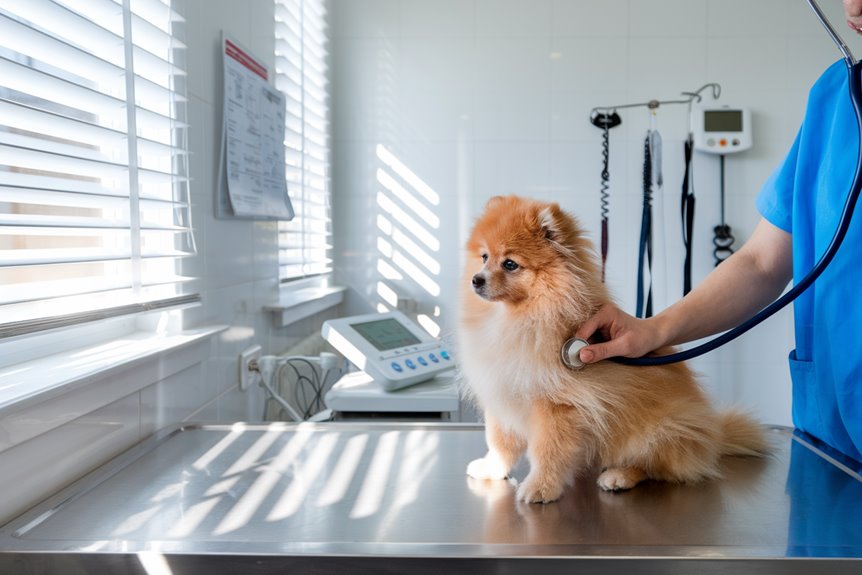
Just a heads-up about five health issues that pop up in Poms – catching them early really helps!
Your pup might deal with tracheal collapse (watch out if they’re tugging on walks), or patella luxation that messes with their knees.
Keep an eye out for hypothyroidism signs like putting on extra pounds and dry skin, or if they’re super thirsty – could be Cushing’s disease.
Looking after your Pom’s health doesn’t have to be complicated.
Get them checked once a year with some blood tests, stay on top of their shots, and don’t skip that monthly heartworm medicine.
Oh, and their teeth matter too – brush them regularly and get them cleaned by the vet.
Being on the ball with all this stuff makes dealing with these typical Pom problems way easier!
Remember to schedule core vaccine boosters every three years to maintain your Pom’s immunity against serious diseases.
Frequently Asked Questions
How Often Should I Have My Pomeranian’s Blood Work Done?
Your Pom needs yearly blood work to stay healthy, but once they hit 8 years old or if they’re dealing with ongoing health stuff, it’s best to bump it up to every 6 months. That’s just basic pet parent care – looking out for your furry buddy!
What Vaccines Are Specifically Required for Indoor-Only Pomeranians?
Just because your little Pom stays inside doesn’t mean they can skip their shots! You’ll want to grab these basic must-have vaccines: Rabies and DHPP (that’s the combo shot for Distemper, Hepatitis, Parvovirus, and Parainfluenza). Think of them as your pup’s invisible armor – even if they’re total homebodies, these shots keep them protected and feeling great!
Can Pomeranians Safely Undergo Anesthesia for Routine Procedures?
Yeah, Pomeranians can handle anesthesia just fine for regular vet stuff! As long as your vet plays it safe, there’s nothing to worry about. They’ll check out your pup’s health first and keep a close eye on them the whole time to make sure everything goes smoothly.
How Much Exercise Is Too Much for a Pomeranian Puppy?
Your tiny Pom needs to take it easy – overdoing exercise can actually hurt these little fluffballs! In fact, most puppy injuries happen when they get too much activity. Keep walks short and sweet – just 2-3 mini walks of 10-15 minutes each day is perfect. If you notice your pup panting hard, that’s your signal to wrap things up and head home.
Should I Get Pet Insurance for My Pomeranian?
You know what? Getting pet insurance for your Pom is totally worth thinking about! Since these little fluffballs can have some health issues that run in their breed, having coverage helps you avoid those scary vet bills. A bunch of other Pom owners I know go for insurance just to keep their minds at ease and save some cash in the long run.
